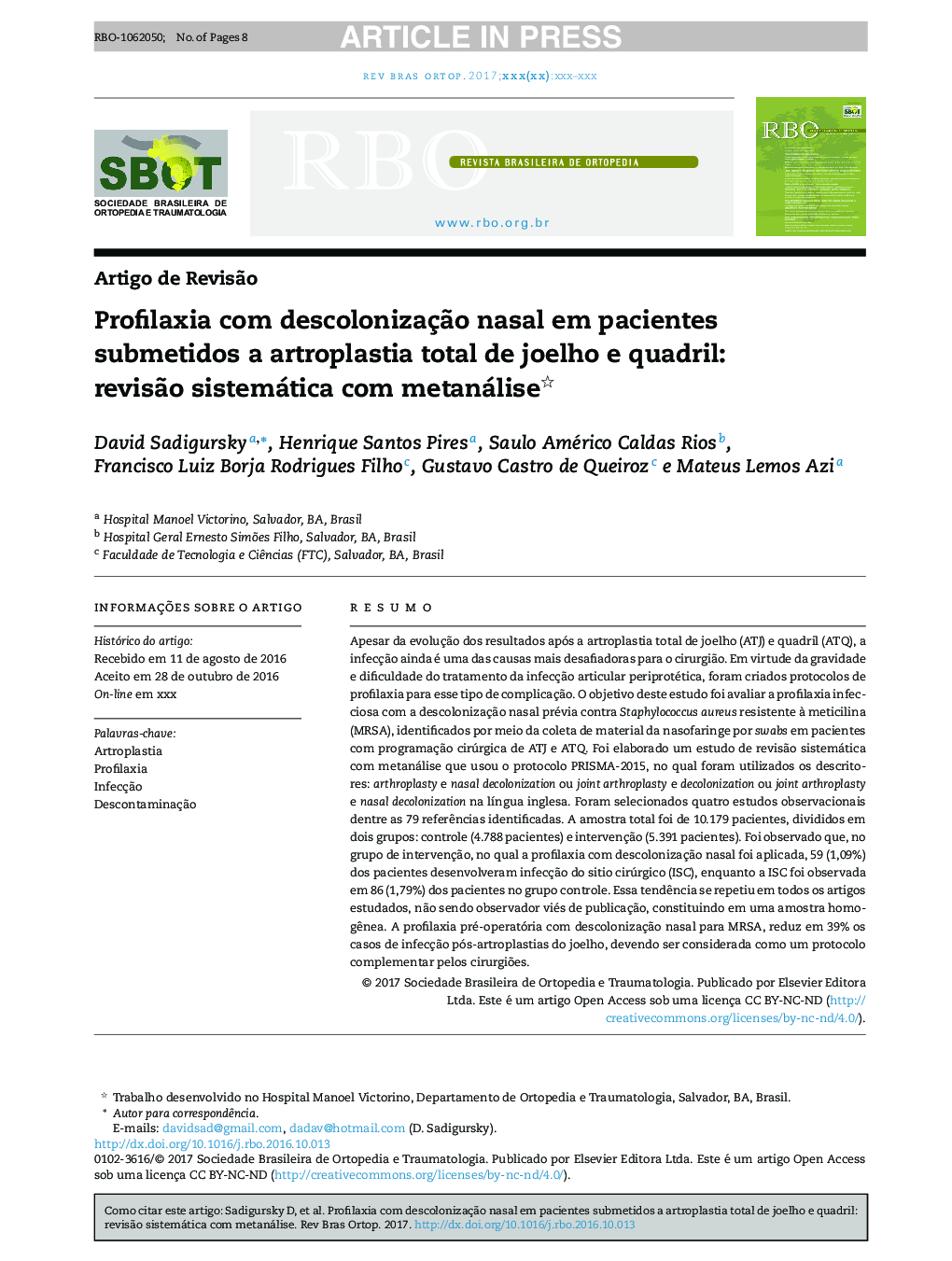| Article ID | Journal | Published Year | Pages | File Type |
|---|---|---|---|---|
| 8598645 | Revista Brasileira de Ortopedia | 2017 | 8 Pages |
Abstract
Despite the evolution of the total knee and hip arthroplasty surgery, high postoperative complication rates in the short and long term still persist. Infection is one of the most challenging complications; due to its gravity and treatment difficulties, prophylaxis protocols have been created to decrease its incidence. The objective of this study was to evaluate the impact of the prophylaxis protocol for methicillinâresistant Staphylococcus aureus (MRSA) decolonization of the nares in patients previously identified by swab cultures, who were to be submitted to a total joint arthroplasty. A systematic review with metaâanalysis was conducted, following the PRISMAâ2015 protocol, using the descriptors: “arthroplasty” and “nasal decolonization,” or “joint arthroplasty” and “decolonization,” or “joint arthroplasty” and “nasal decolonization,” for final selection of four observational studies from 79 references identified. This study included a total sample of 10,179 patients, divided in two groups: the control group (4,788 patients) and intervention group (5,391 patients). It was observed that the intervention group, in which prophylaxis with nasal decolonization was used, 59 (1.09%) of the patients developed a surgical site infection (SSI), while in the control group there were 86 cases of SSI (1.79%). This trend repeated itself in all articles, showing no publication biases, forming a homogeneous sample. The use of a prophylaxis protocol for decolonization of MRSA, reduced SSI cases by approximately 39%.
Related Topics
Health Sciences
Nursing and Health Professions
Physical Therapy and Rehabilitation
Authors
David Sadigursky, Henrique Santos Pires, Saulo Américo Caldas Rios, Francisco Luiz Borja Rodrigues Filho, Gustavo Castro de Queiroz, Mateus Lemos Azi,
